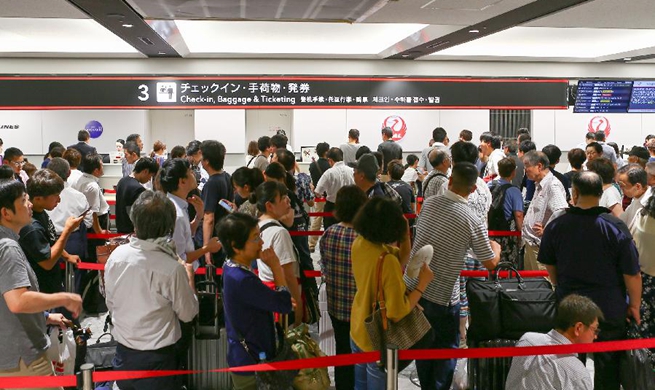BAGHDAD, Sept. 7 (Xinhua) -- The Iraqi Foreign Ministry on Friday strongly regretted protesters' attack on and burning of the Iranian consulate in Iraq's southern city of Basra.
The attack "is an unacceptable development and is not in line with national hospitality for (diplomatic) missions," the ministry spokesman Ahmed Mahjoub said in a statement.
"Targeting the diplomatic mission harms the interests of Iraq and its relations with other countries, and does not relate to the slogans of demonstrations and their demand for services and water," Mahjoub added.
Dozens of demonstrators stormed the Iranian consulate on Friday in Basra, some 550 km south of the capital Baghdad, and set fire to the building, a local security source told Xinhua on condition of anonymity.
Meanwhile, Iran-backed Asa'ib Ahl al-Haq fighters fired shots as dozens of demonstrators approached their headquarters in Basra, the source said.
Asa'ib Ahl al-Haq, or League of People of Righteousness, is part of the Hashd Shaabi brigades. The group was allegedly funded, trained and armed by Iran's Quds Force during the U.S. occupation of Iraq and later became allied to the Shiite-led government.
A few hours after burning the Iranian consulate, the demonstrators headed toward the U.S. consulate, but the attempt was unsuccessful because of upgraded security measures, the source said.
The demonstrations are part of days-long protests in the southern oil-hub province of Basra, during which hundreds of angry demonstrators burned the provincial government buildings and offices of leading political parties and headquarters of some Shiite militias in protest of wide-spread corruption and water contamination in the province.
Basra, the province's capital city which bears the same name, has long witnessed complaints among its over 2 million residents about the collapsing infrastructure, power cuts and corruption.
Water supply in the province is also widely criticized for high salinity, with thousands of residents having been hospitalized.
The protesters also accused the influential political parties of being behind the wide-spread corruption, which led to high unemployment and failure in rehabilitation of the country's electricity, water and other basic services.

















